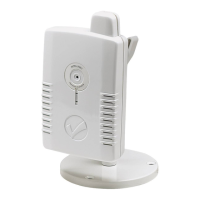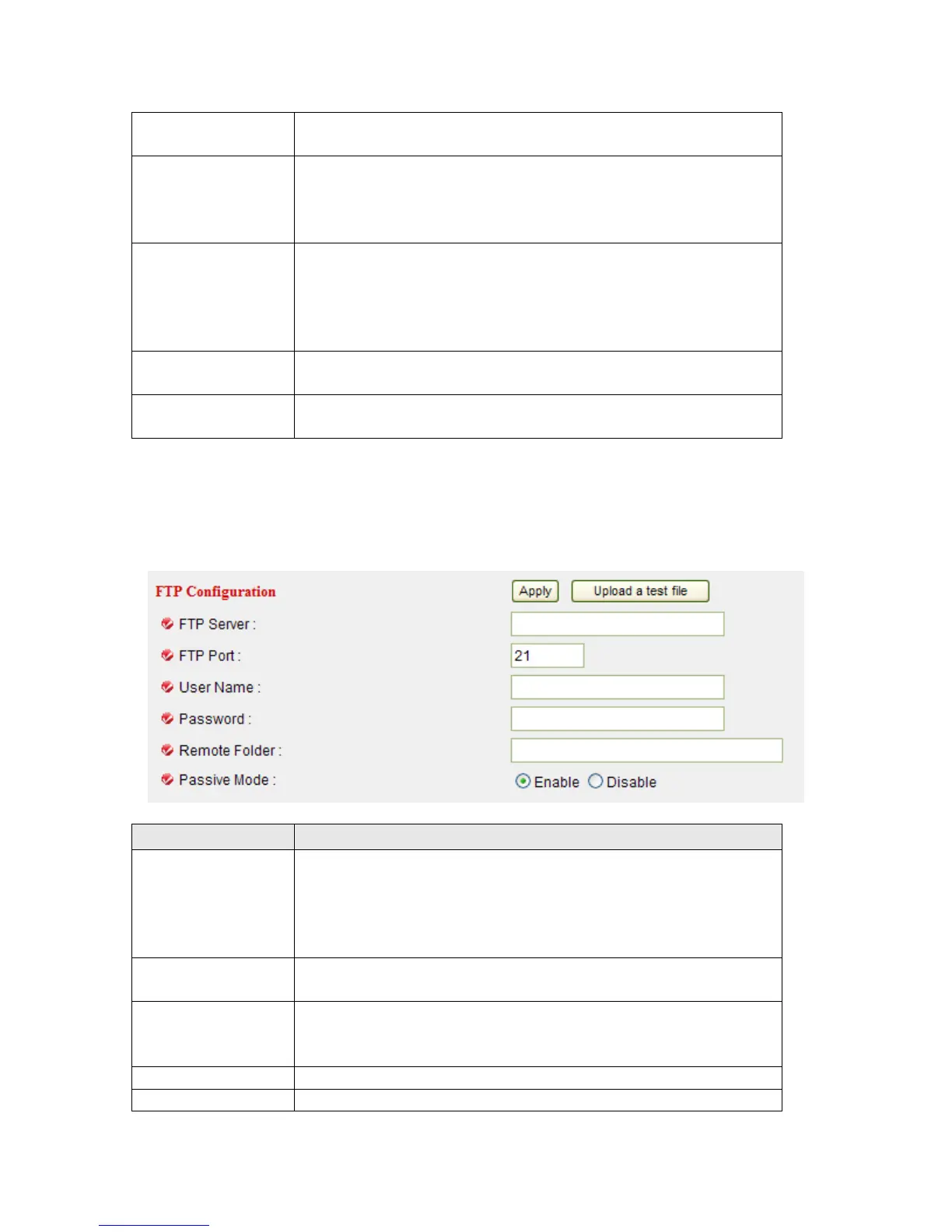44
senders, so it’s highly recommended that you enter a
valid address.
SSL If SSL encryption is required to connect to the SMTP
server, select ‘Enable’. Select ‘Disable’ if your SMTP
server doesn’t support or require SSL encryption. If in
doubt, ask your ISP or e-mail server’s administrator.
SMTP
Authentication
Some SMTP servers require e-mail senders to be
authenticated. If you’re not sure whether to select
“Enable” or “Disable,” refer to your e-mail software (e.g.,
Outlook or Outlook Express) or ask your network
administrator or ISP.
User Name If your SMTP server requires authentication, enter your
SMTP server username.
Password If your SMTP server requires authentication, enter your
SMTP server password.
Click “Apply” to save the settings.
After that click on ‘Send a test e-mail’ to verify that the e-mail function is working
properly.
2.5.2 FTP Settings
Item Description
FTP Server Enter the address of your FTP server here. Valid entries
are either the IP address of the server (format:
111.222.333.444), or the domain name of the server
(format: domainname.com). Invalid entries are
ftp.domainname.com or http://domainname.com.
FTP Port Input the port number of the FTP server you wish to use
here. Normally you should use the default port 21.
User Name Key in a valid FTP user name here. Make sure that the
user account you wish to use has read and write
privileges on the FTP server.
Password The password for the FTP user account goes here.
Remote Folder Key in the folder name on the FTP server in which the

